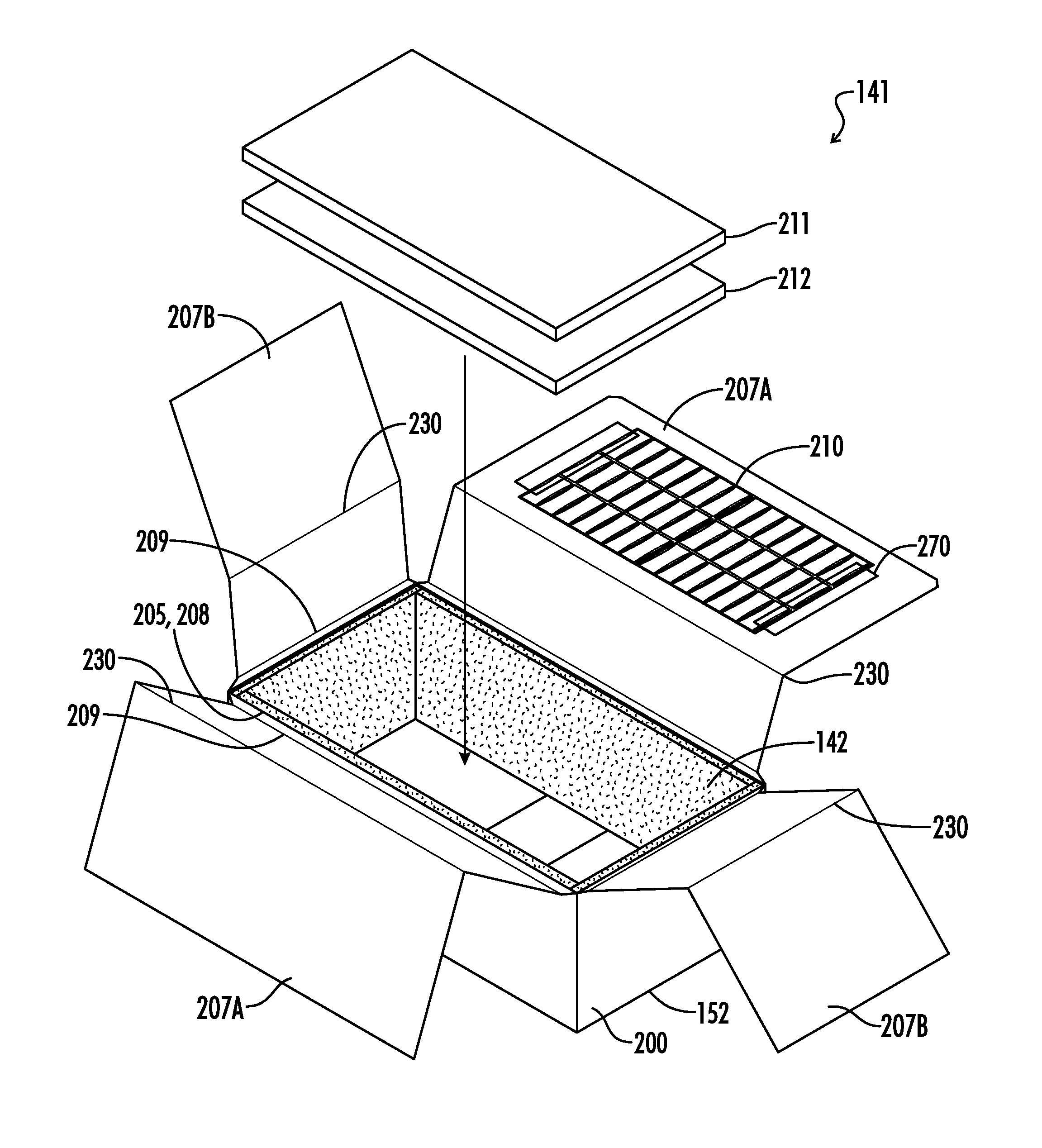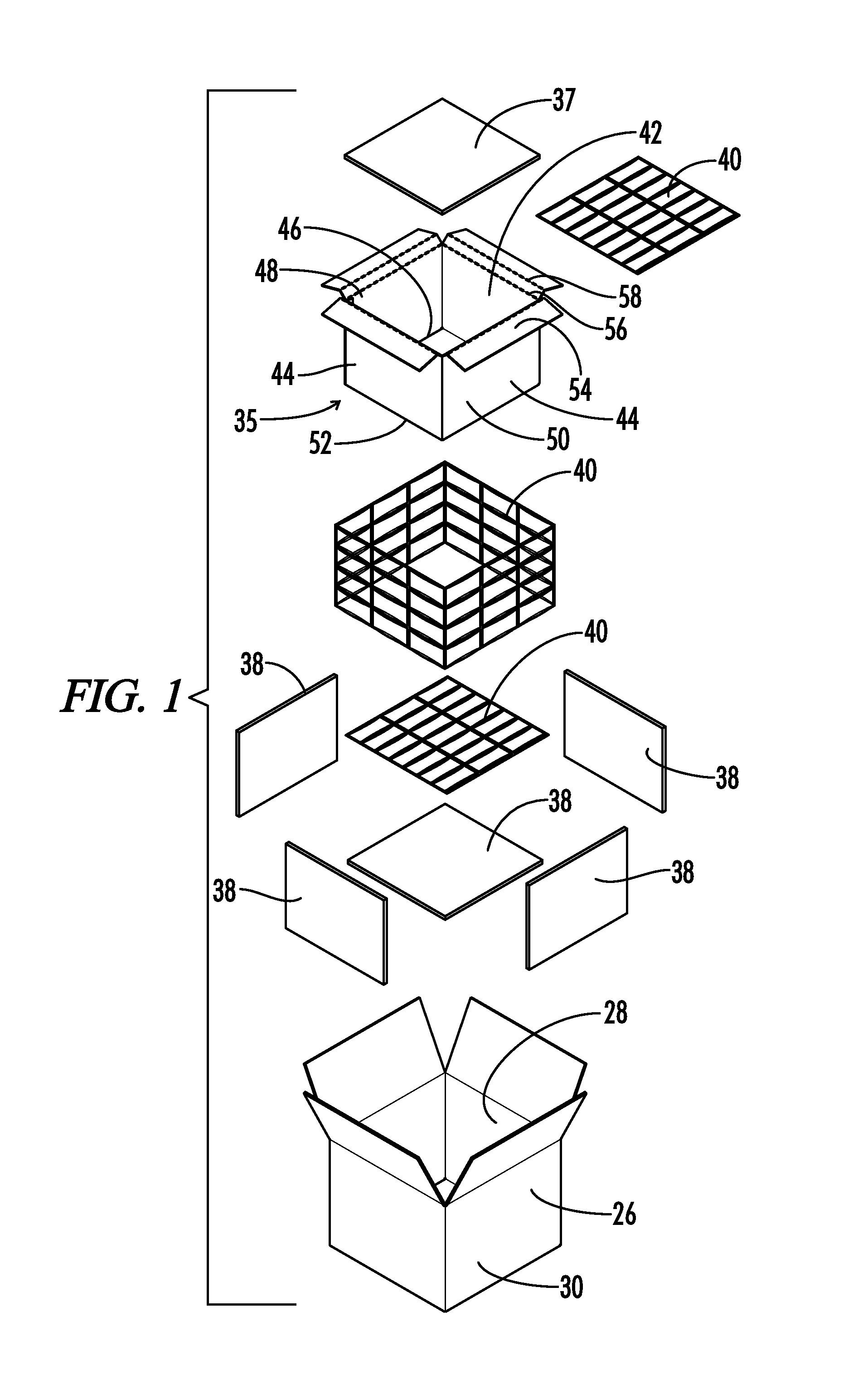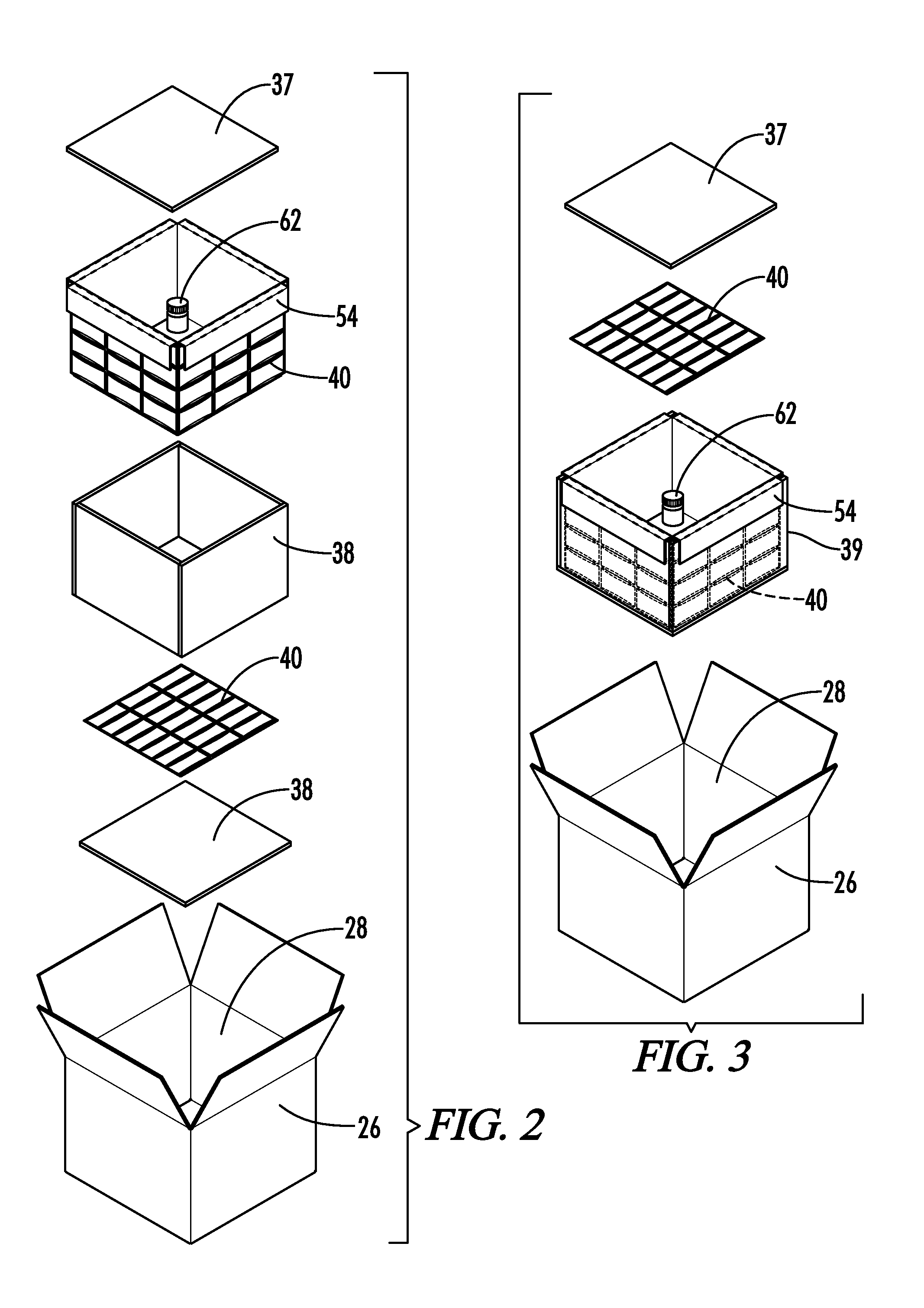Shipping box system with multiple insulation layers
a box system and insulation layer technology, applied in domestic cooling devices, lighting and heating devices, domestic applications, etc., can solve the problems of at least one very important problem, high cost of decanol-1, and high cost of deuterium oxide and decanol-1, and achieve the effect of constant temperature range during shipmen
- Summary
- Abstract
- Description
- Claims
- Application Information
AI Technical Summary
Benefits of technology
Problems solved by technology
Method used
Image
Examples
example 1
[0066]A temperature controlled shipping box system was prepared as follows. A rectangular ECT-32 (edge crush test) corrugated cardboard shipping box having a front, a rear, two sides, a closed bottom and a closeable top was provided. The shipping box had a length of 26 inches, a width of 17 inches and a height of 16.2 inches and was made of ECT-32 ⅛ inch thick corrugated cardboard. A rectangular EPS (expanded polystyrene) box having a front, a rear, two sides, a closed bottom, and a top closeable by a lid was placed inside the corrugated cardboard shipping box. The EPS box had a length of 23 inches, a width of 17 inches, a height of 13.2 inches and the expanded polystyrene forming the bottom, sides and lid was 1.5 inches thick and had 3 pcf (pounds per cubic feet) density. A first inner box (i.e., a first insulating material) was placed centrally inside the EPS box. The first inner box was made of 32 ECT ⅛ inch thick corrugated cardboard, had a front, a rear, two sides, a closed bot...
example 2
[0070]A temperature controlled shipping box system was prepared as follows. A rectangular ECT-32 (edge crush test) corrugated cardboard shipping box having a front, a rear, two sides, a closed bottom and a closeable top was provided. The shipping box had a length of 26 inches, a width of 17 inches and a height of 16.2 inches and was made of ECT-32 ⅛ inch thick corrugated cardboard. A rectangular EPS (expanded polystyrene) box having a front, a rear, two sides, a closed bottom, and a top closeable by a lid was placed inside the corrugated cardboard shipping box. The EPS box had a length of 23 inches, a width of 17 inches, a height of 13.2 inches and the expanded polystyrene forming the bottom, sides and lid was 1.5 inches thick and had 3 pcf (pounds per cubic feet) density. A first inner box (i.e., a first insulating material) was placed centrally inside the EPS box. The first inner box was made of 32 ECT inch ⅛ thick corrugated cardboard, had a front, a rear, two sides, a closed bot...
example 3
[0074]A third temperature controlled shipping box system identical to EXAMPLE 2 except that the payload was thirty-four eight ounce bottles of water was prepared and subjected to Winter ISTA 7D 72-hour temperature testing as described in EXAMPLE 2 directly above. As shown in FIG. 20, the temperature inside the water bottle remained between 2-8° C. for the 72 hour testing period.
PUM
 Login to View More
Login to View More Abstract
Description
Claims
Application Information
 Login to View More
Login to View More - R&D
- Intellectual Property
- Life Sciences
- Materials
- Tech Scout
- Unparalleled Data Quality
- Higher Quality Content
- 60% Fewer Hallucinations
Browse by: Latest US Patents, China's latest patents, Technical Efficacy Thesaurus, Application Domain, Technology Topic, Popular Technical Reports.
© 2025 PatSnap. All rights reserved.Legal|Privacy policy|Modern Slavery Act Transparency Statement|Sitemap|About US| Contact US: help@patsnap.com



